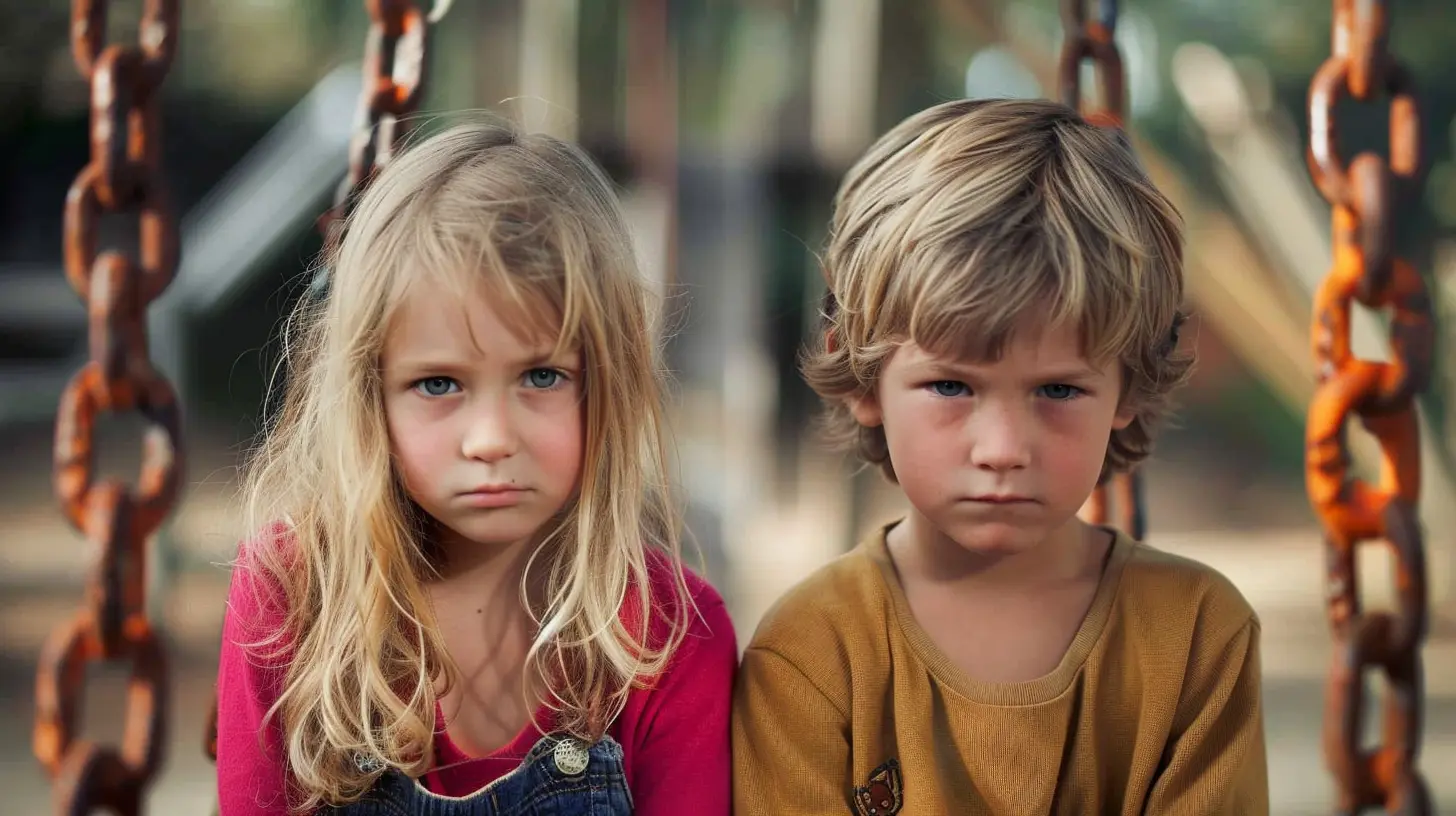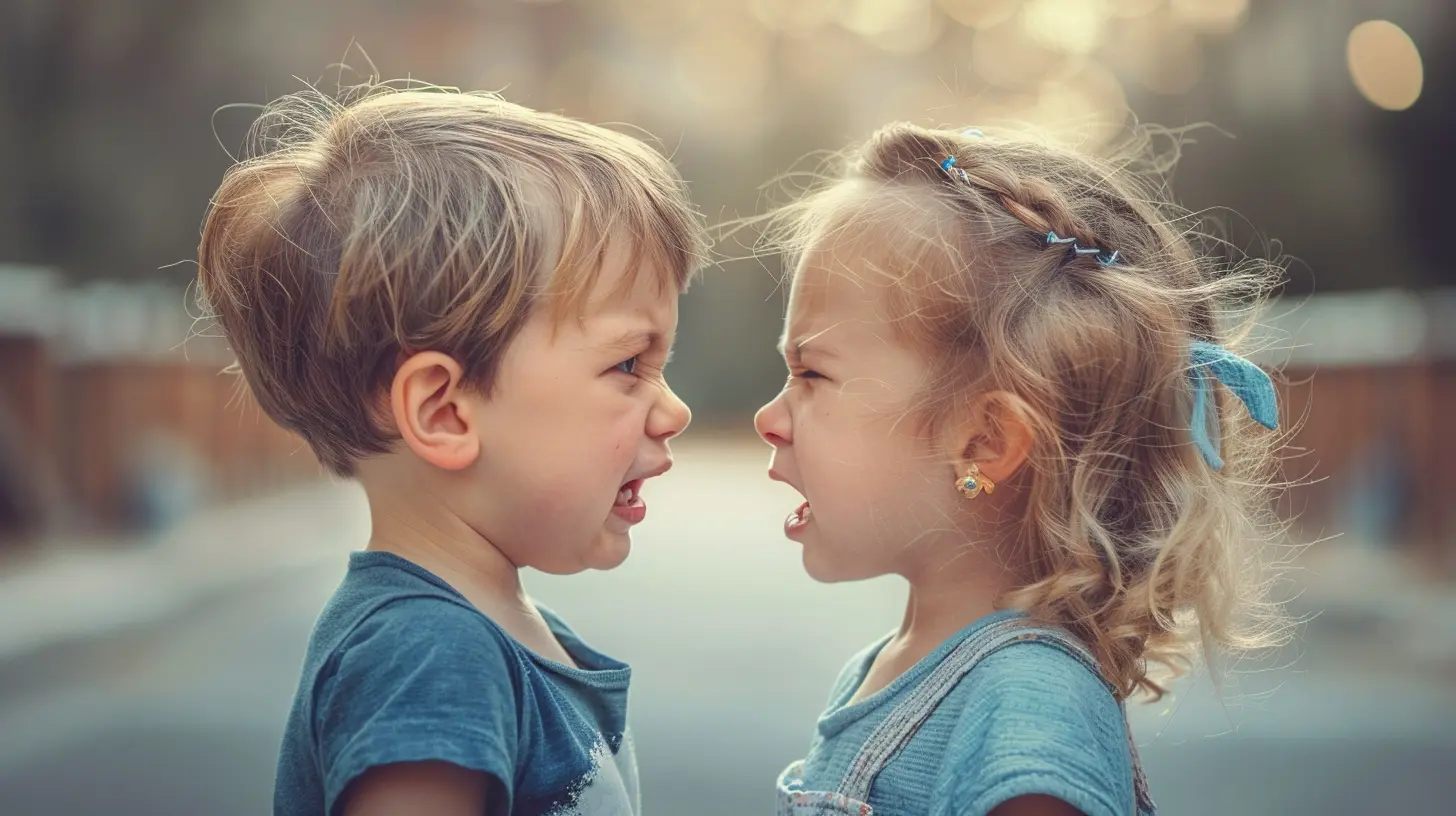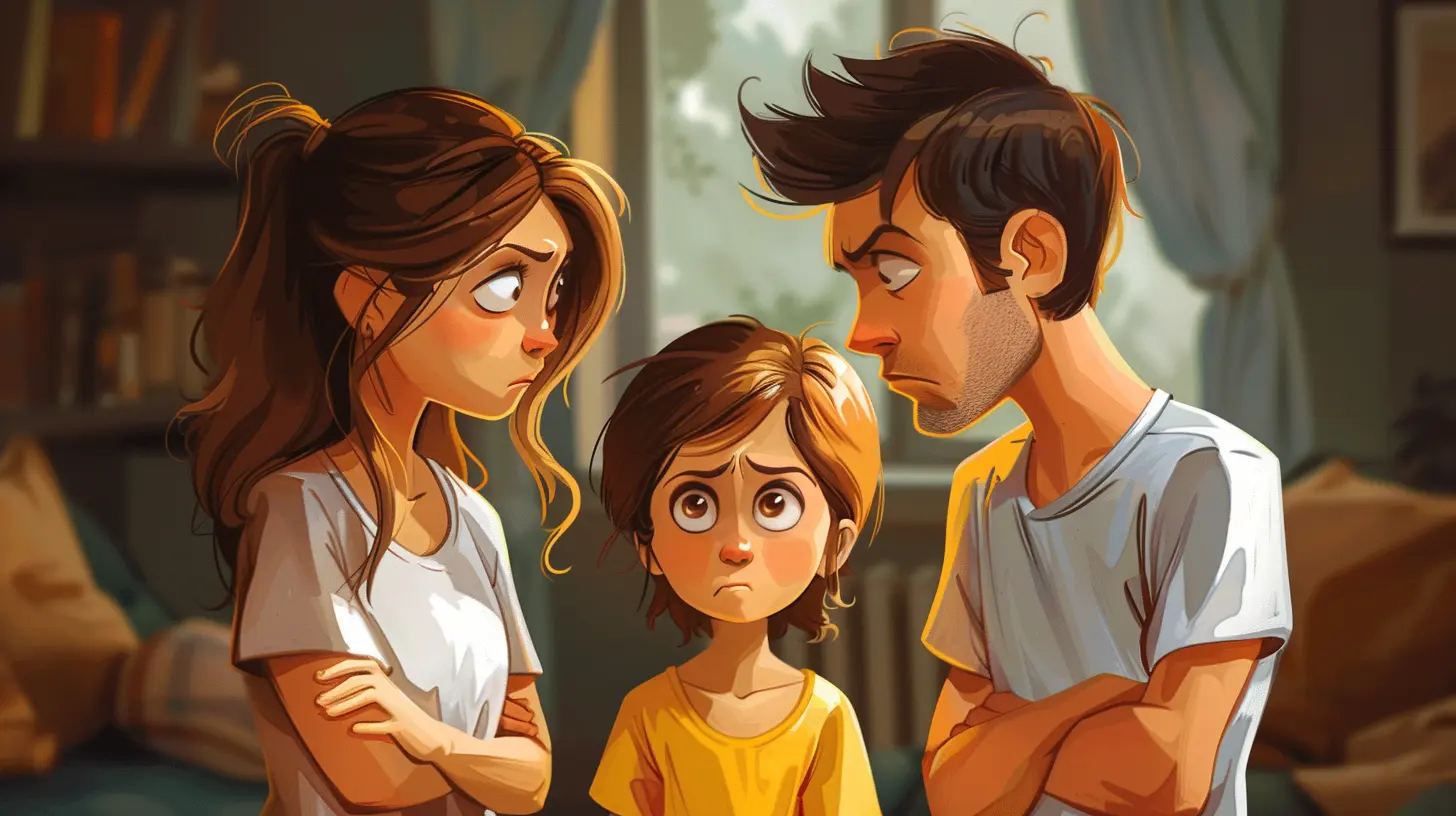The Effects of Parenting Styles on Sibling Relationships
10 August 2025
If you're raising more than one child, you probably already know this—sibling relationships are complex. One minute they're giggling over an inside joke, and the next, they're arguing over who got the bigger slice of cake. Sounds familiar?
But here’s the real kicker—not all of their bond (or battles) come down to personality differences. A huge part of the dynamic between siblings is shaped by you—their parent—and the way you parent.
Yep, your parenting style can either help nurture a close-knit sibling bond or throw fuel on the sibling rivalry fire. Let’s dive deep into how different parenting styles affect sibling relationships, and what you can do to keep the peace (most of the time).
What Are Parenting Styles, Anyway?
Before we get knee-deep in tantrums and timeouts, let’s break down the four main parenting styles that psychologists typically talk about:1. Authoritative – High warmth + High control
2. Authoritarian – Low warmth + High control
3. Permissive – High warmth + Low control
4. Neglectful/Uninvolved – Low warmth + Low control
Think of these styles like parenting “personalities.” Each has a unique flavor, and—surprise!—kids pick up on them. The way you talk, enforce rules, show affection, and resolve conflict... it all contributes to how your kids see (and treat) each other.
The Authoritative Style: The Balanced Coach
What It Looks Like
You’re warm, supportive, but also hold clear expectations. You don’t just bark orders—you explain why rules exist. You listen, you guide, and you encourage independence, but within healthy boundaries.How It Affects Siblings
Authoritative parenting is basically the gold standard when it comes to promoting positive sibling relationships.- Less Jealousy: Because kids feel equally valued and heard, they're less likely to compete for your attention.
- Teamwork Over Rivalry: Fair and consistent rules mean kids know what’s expected—and they can see that rules apply to everyone equally.
- Emotional Intelligence: These kids usually have better conflict-resolution skills, so sibling spats are less explosive (and more constructive).
Think of it like running a family team where everyone has a role, the rules are clear, and the coach (that's you!) is respected and loved.
The Authoritarian Style: The Drill Sergeant
What It Looks Like
High on discipline, low on warmth. You may lean on rules, obedience, and “because I said so” parenting. Emotions sometimes get parked at the door.How It Affects Siblings
Authoritarian parenting can unintentionally drive a wedge between siblings.- Resentment Breeds Rivalry: When kids feel controlled or misunderstood, their frustration can spill over onto each other.
- Sneaky Behavior: Instead of resolving conflicts, some kids may hide issues or blame siblings to avoid punishment.
- Role Envy: Strict roles like “the good one” or “the wild one” can create unhealthy labels that siblings grow to resent.
It's like running a household that feels more like a boot camp. Sure, there's order—but sometimes, at the cost of connection.
The Permissive Style: The Laid-Back Buddy
What It Looks Like
You’re all about hugs, freedom, and giving your kids space. Rules? Maybe. Curfews? Depends on your mood. You're the "fun parent" and tend to avoid saying "no."How It Affects Siblings
Sounds dreamy, right? But too much freedom can actually stir the sibling pot.- Power Struggles: When there’s no clear authority, siblings may fight for dominance—verbally or physically.
- Inconsistent Fairness: One child might feel the other “gets away with everything,” which can breed deep resentment.
- Emotional Volatility: Kids might lack the coping skills or boundaries needed to resolve conflicts peacefully.
Think of this as a love-filled, rule-light home where the pecking order is constantly up for grabs. Chaos often follows.
The Neglectful Style: The Missing-In-Action Parent
What It Looks Like
Low warmth and low control. You’re emotionally distant or rarely around, either due to personal struggles or overwhelming responsibilities. Often unintentional, but the effects are real.How It Affects Siblings
Neglectful parenting leaves kids fending for themselves—and sibling relationships usually suffer.- Survival Mode: Kids may rely solely on each other, which can either bond them tightly or pit them against each other.
- No Mediation: Without adult guidance, fights go unresolved and grudges grow.
- Emotional Void: Children often lack tools to express their feelings, making sibling interactions reactive and raw.
In this style, the family ship is sailing with no clear captain, and the crew (your kids) might be scrambling to steer—or crash.
Unequal Parenting: Playing Favorites (Even by Accident)
Let’s pause for a sec and talk about something that really sours sibling relationships—favoritism.Even if you don’t mean to, kids are hyper-aware of how much attention or praise their siblings get compared to them. One child might get more cuddles, more screen time, or fewer chores. Suddenly, it’s not just “Mom said no”—it’s “Mom always says yes to him.”
The effects?
- Long-term resentment
- Increased conflicts
- Lower self-esteem for the "less favored" child
So even the most loving parents can slip into these patterns without realizing it. A little self-reflection (and some honest chats with your kids) can go a long way.
Mixed Parenting Styles in One Household
Now, here’s a twist. What happens when one parent’s authoritative and the other’s permissive? Or maybe Grandma lives with you and has a totally different rulebook?Kids pick up on these inconsistencies faster than they find the hidden candy stash.
- Mixed Messages: Conflicting rules confuse kids and can cause them to act out.
- Manipulation Risks: Some kids learn to “parent shop,” going to the more lenient adult to get their way.
- Sibling Tension: If one child gets the stricter parent and the other doesn’t… boom, rivalry ignites.
Consistency is key. Try to align your parenting strategies, even if that means some tough conversations with your co-parent (or live-in relatives).
Sibling Age Gaps and Parenting Style Impacts
Ever notice how your firstborn had a strict bedtime by the book, and your youngest basically tucks themselves in?That’s normal! Parenting styles often evolve (or soften) over time. But the side effect? Your older and younger kids might feel like they grew up in totally different homes.
- Older Siblings: Might feel pressure to be role models, or feel jealous of leniency shown to younger siblings.
- Younger Siblings: Might act out to get attention or take sibling support for granted.
Being aware of this helps. It's not about being exactly equal—it’s about being fair.
Tips for Nurturing Healthy Sibling Relationships Through Parenting
Alright, so how do we help our kids love (or at least tolerate) each other?Here are some game-changing tips:
1. Be the Referee, Not the Judge
Instead of picking sides, coach them to solve conflicts together. Guide, don’t dictate.2. Give Each Child One-on-One Time
Even 10 minutes a day per child makes them feel seen as individuals, not just one of the “sibling crew.”3. Set Clear Family Rules
Make rules about kindness, respect, and space. And make sure they apply across the board.4. Celebrate Differences
Encourage each child’s strengths without comparing. “You’re so creative” goes a lot further than “Why can’t you be more like your sister?”5. Model Positive Conflict Resolution
They won’t learn to talk things out if they see you blow up or shut down during disagreements. Show them how it’s done.Final Thoughts
Here’s the truth: no parenting style is perfect, and we all have moments of being overly strict, too lenient, or just plain exhausted.But being mindful of your parenting approach—and how it affects the sibling relationship dynamic—can make a world of difference.
Start small. Focus on fairness. Embrace connection. And remember: your kids don’t need to be best friends today. They just need the foundation to have each other’s backs tomorrow.
all images in this post were generated using AI tools
Category:
Parenting StylesAuthor:

Zelda Gill
Discussion
rate this article
1 comments
Zylith Diaz
What a wonderful exploration of how parenting styles shape sibling dynamics! Your insights are incredibly valuable for fostering healthier relationships within families. Thank you for sharing these important ideas that can help parents nurture stronger bonds among their children!
August 20, 2025 at 4:12 AM

Zelda Gill
Thank you for your kind words! I'm glad you found the insights valuable for nurturing stronger sibling bonds.


